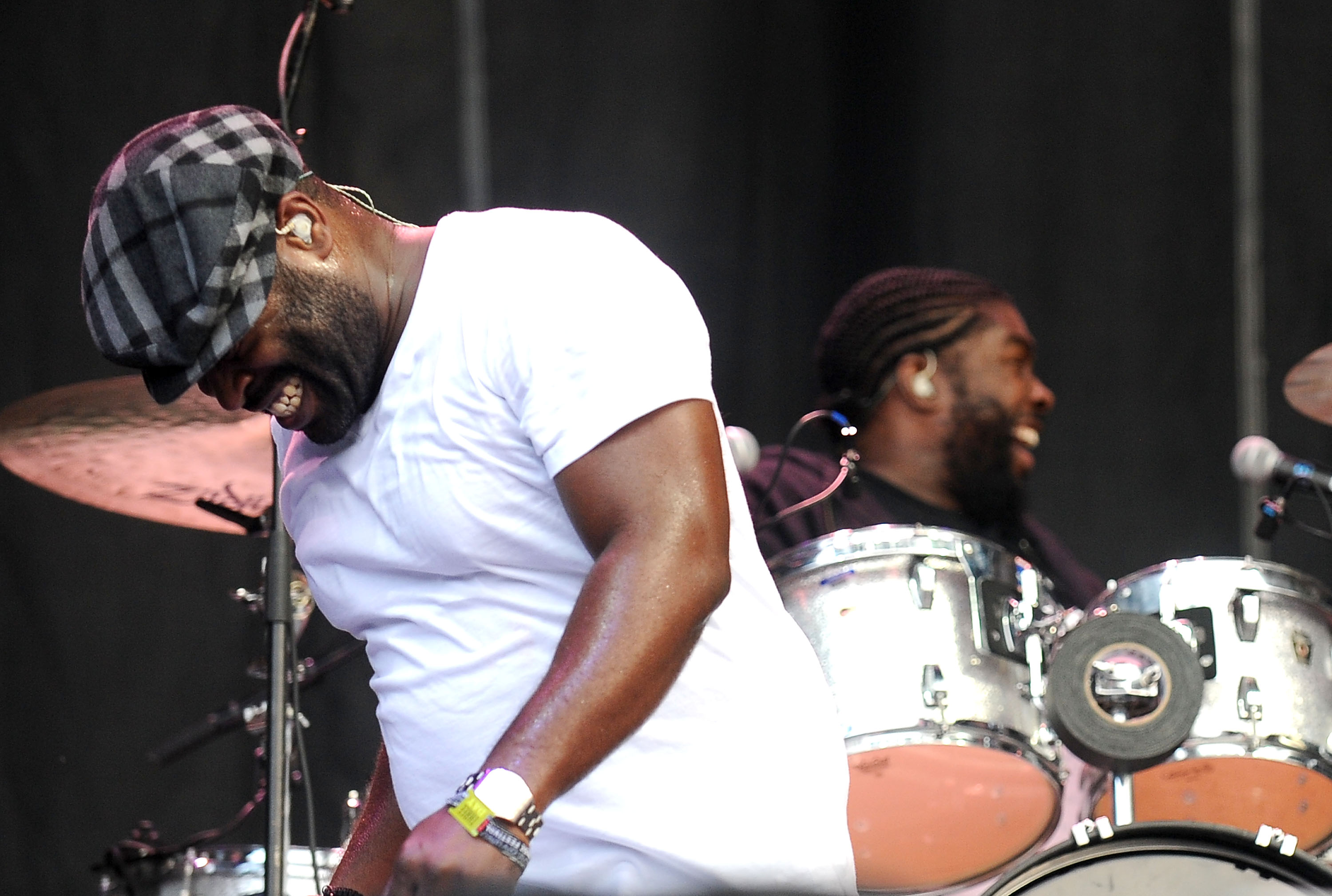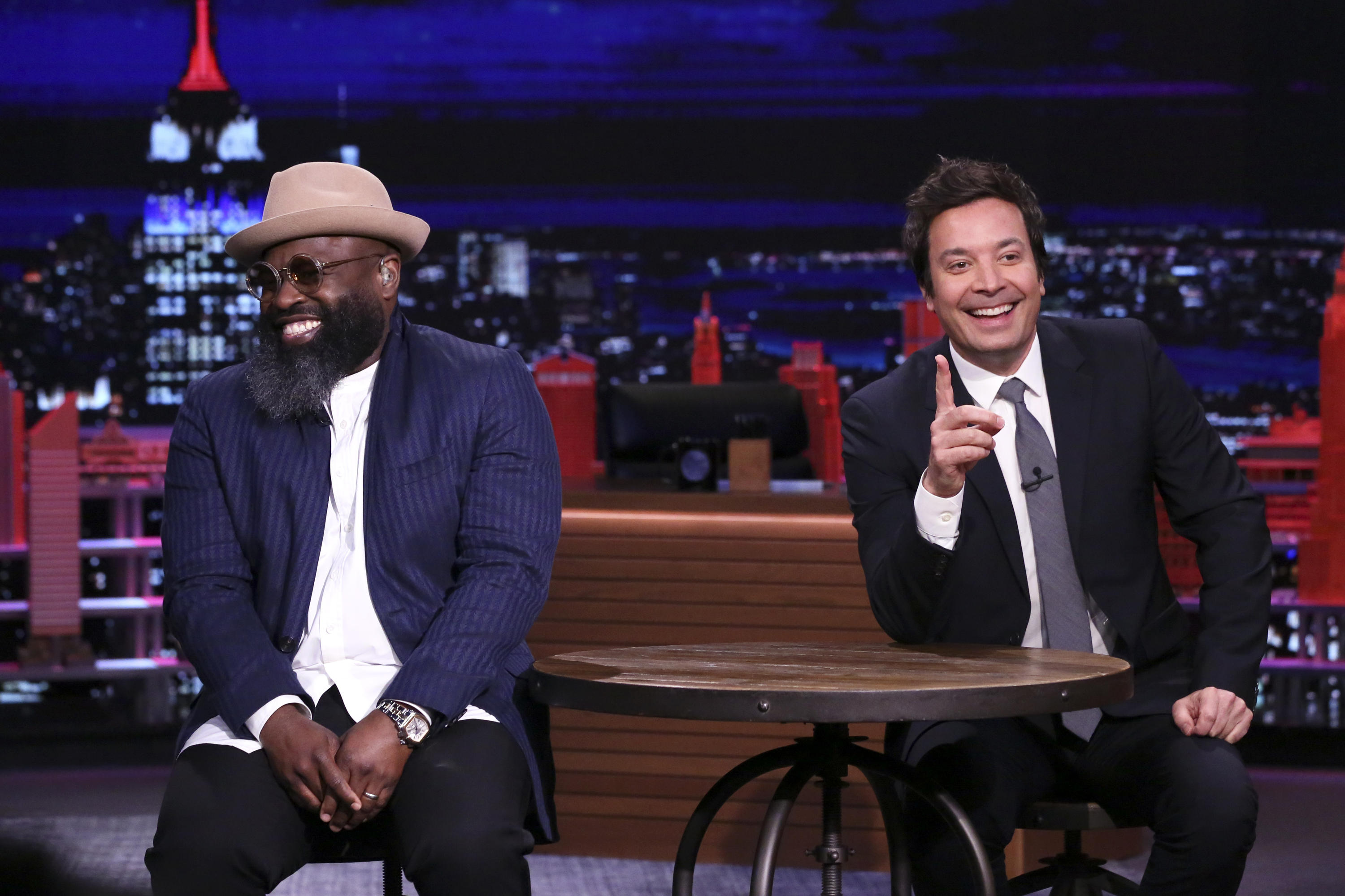
The RX is Uproxx Music’s stamp of approval for the best albums, songs, and music stories throughout the year. Inclusion in this category is the highest distinction we can bestow and signals the most important music being released throughout the year. The RX is the music you need, right now.
Things are looking up for Saba. On the Chicago rapper’s last album, Care For Me, he came to grips with the trauma of losing his cousin and Pivot Gang bandmate John Walt to street violence, and in the last two years, he’s seen another member of the crew, Squeak, fall victim as well. So, you’d be forgiven for being surprised that his first new effort in three years, Few Good Things, takes a completely opposite tack compared to its predecessor.
This was intentional, as I learned during a Zoom call with Saba to discuss the new project and all he’s done since Care For Me became a fan favorite. That album, he says, is “so personal that it’s like my fans and people who are fans of that album, they now have an emotional connection to those songs and those lyrics in that time period. So going into this album, there’s something that you have to accept as an artist and that’s that once people develop an emotional connection and it’s not just an objective connection to something, that’ll be your best album regardless of what you do.”
This is why he approached Few Good Things as an “anti-Care For Me.” Creative decisions that would work for one wouldn’t work for another, so Saba had to reverse the formula that made Care For Me such a success – a risky move which he acknowledged, accepting that fans’ reception of the new work could go the other way as well. “Every decision we made on [Care For Me], how do we make the opposite decision on this one while still being original and organic and authentic to who I am? Because Care For Me is such a part of me, but also Few Good Things is a fuller scope of who I am.”
As Saba points out, there were as many years between those two albums as there were between his initial breakout on Chance The Rapper’s Acid Rap mixtape and Care For Me. The same level of growth and evolution is evident, as well, although he sticks close to his roots as one of the products of Chicago’s Young Chicago Authors open mics. Those same open mics produced city standouts like Chance, Mick Jenkins, Noname, and the rest of Saba’s Pivot Gang crew Joseph Chilliams, Frsh Waters, MFnMelo, and John Walt. That sound – effortlessly complex, full of heady wordplay and surprising, off-kilter cadences – remains an anchor point for the 13 songs on Few Good Things, while Saba makes an effort to expand the sound beyond the muddled, rainy palette of his prior work.
For instance, on “Fearmonger,” produced by Pivot mainstays Daoud and Daedae, a bright bassline underpins a stripped-down instrumental as Saba meditates on the nature of the near-constant anxiety that comes with growing up at the lower end of the income spectrum – and seeing that course slowly reverse through his own precarious efforts. Not only does the song represent a hard left turn from the introspective material he’s best known for, but he also shared it as the first single from the album as an intentional bid to reset fans’ expectations ahead of time.
“We dropped ‘Fearmonger’ first because it’s the most sonically opposite of the entire Care For Me album,” he explains. “I wanted to scare people, I wanted them to not be sure how they felt about it and that to me is what pushes sonic boundaries, especially in hip-hop.” He offers an even wider perspective, pointing out that, “it’s a lot of monotony, it’s a lot of the same, so I think when I do a record like ‘Fearmonger,’ I want to put that out and push that because there’s an individualistic approach to the conception of that record. So, some fans might hear that and not understand how to listen to it but based on fan-hood and them wanting to like it — because fans want to like the music — some of them will listen until they do like it. And I think that’s how music’s meant to be listened to.”
Putting out a song called “Fearmonger” in the hopes of scaring people out of complacency – and doing so so completely fearlessly – is a bold move, but the rollout for this project is full of them. In addition to the album, Saba has shot a short film, also titled Few Good Things, hoping to capture the spirit of the music. He also betrays next to no apprehension about switching disciplines, instead displaying the same bold confidence with which he talks about juking fans’ expectations.
“I think the cool part of being able to play music, but music specifically that is lyric-based, is that we’re able to use our language to set scenes,” he explains. “We can make our language really visual, and I think that’s one of the elements that make telling personal stories, firsthand, telling things that are valuable to me, I think that’s one of the things that makes it unique. It makes people connect to it, but I think it’s always been, with our writing style, it’s always been really visual.” That skill, he says, is critical to making the leap into a visual medium. “When we started really locking in and working on this album, the director of this film, C.T. Robert, was really close,” he says.
“Every song that got done, he got immediately. We talked. We had full conversations, pretty much every time anything new got added to the mix, where we broke down family stuff. We broke down the lyrics. We broke down everything so that it was really open, in terms of the writing of the film, while also the writing of the album was happening simultaneously.” However, he’s still not sure how he feels about the movie or the album, yet, because they’re not out there in the world where viewers and listeners can consume them – his one concession to the artistic anxiety he’s been able to somehow escape throughout the process.
“I think I’ll experience that the day of the screening, the day it’s public, the day everybody is able to see it,” he says, “because that’s the day that it’s going to feel like, ‘Alright. This is real. This is tangible. We’ve released this.’ I’m so used to having things months and months and months in advance that it almost is imaginary until it’s released. This album, even Few Good Things, it’s been music that has been done for months and months and months. So, to finally be releasing it next week now, it’s just a crazy, crazy, crazy feeling.”
As far as what he wants those fans and consumers to take away from the concept of Few Good Things, he offers a few examples of the things that have become important to him and sustained him through the tough times that aren’t even all that far in the rearview. “One thing that I got from these last couple of years is time,” he observes. “I got a lot of my time back, and in having that time, you’re able to realize how valuable just that is. Just being able to spend your time how you want and not having to make choices based on necessity and survival and all of this other shit, but just how would you spend your day if you could spend your day how you wanted to spend it and that’s what true wealth equates to.”
Few Good Things is out 2/4 via Pivot Gang, LLC. You can pre-save here.







